It’s the clash of the titans in Silicon Valley, quite literally, as Meta and OpenAI go head to head over the hottest commodity in technology right now - AI talent.
Mark Zuckerberg’s Meta is pulling out all the stops to recruit the brightest minds in artificial intelligence. He is definitely not scared to trample on anyone’s toes as Zuckerberg tries to poach top engineers and researchers with offers reportedly reaching into the billions.
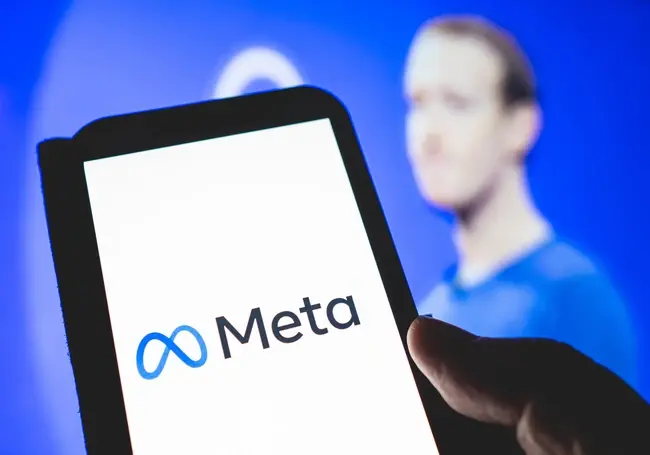
Competition for Top AI Talent
This aggressive talent push has left OpenAI scrambling to protect its home turf. According to Wired, Meta successfully poached eight OpenAI staff members in just two weeks, sending uneasiness through the generative AI ecosystem.
In response, Mark Chen, OpenAI’s Chief Research Officer, issued an internal memo via work channels to reassure staff that the company would defend its talent against Meta’s recruitment drive.
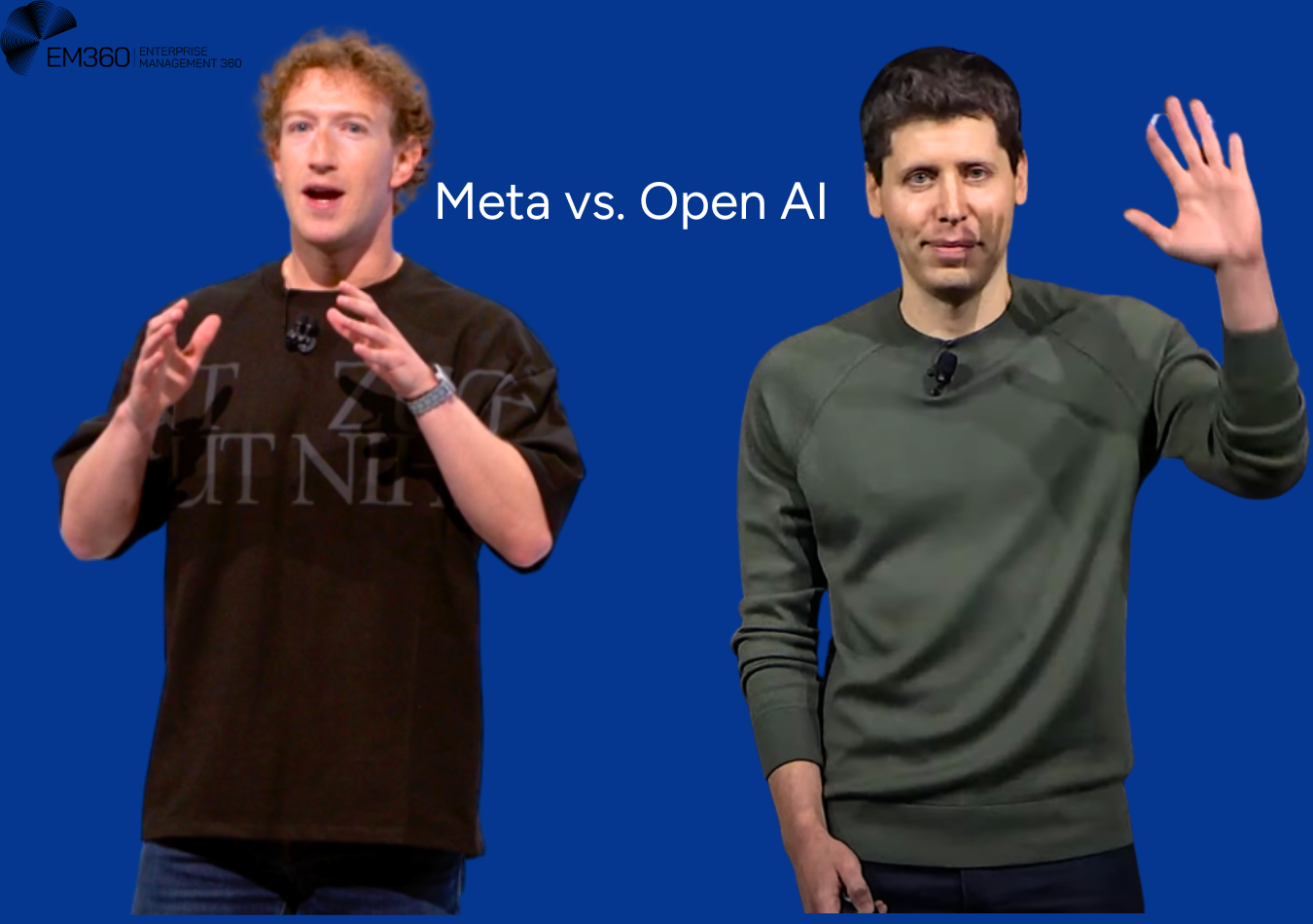
Take a look at this video by EM360Tech’s Ben King for a better understanding:
Meta’s Multi-Billion Dollar Strategy to Win the AI Talent War
Zuckerberg’s daring bid to attract the industry’s top talent with a pretty hefty compensation package has sparked widespread unease among its rivals.
OpenAI CEO Sam Altman recently revealed on Uncapped, the podcast hosted by his brother Jack Altman that Meta has dangled signing bonuses as high as 100 million U.S dollars to lure away engineers, adding, “They’ve started making these giant offers to a lot of people on our team.”
OpenAI’s leadership is worried, with Chen comparing the defections to a break-in, writing,
“I feel a visceral feeling right now, as if someone has broken into our home and stolen something.”
Meta's Superintelligence Labs
Meta’s shopping spree doesn’t stop at staff poaching. In mid-June, Meta paid $14 billion for a 49 per cent stake in Scale AI, recruiting its founder Alexandr Wang to lead a new Meta Superintelligence Labs initiative.
Bloomberg confirmed that Wang, a rising Silicon Valley star, will focus on accelerating Meta’s push for superintelligence — AI that could one day exceed human cognitive abilities.

LLMs Reshaping Digital Workflows
How large language models move from chatbots to core engines for support, content, legal and clinical workflows across the enterprise.
Who are Meta’s new AI recruits?
Wang steps in as chief AI officer, supported by a handpicked team of elite engineers and researchers drawn from leading AI players such as OpenAI, DeepMind, Google, and Anthropic. These heavyweight recruits are now being folded into a dedicated superintelligence group under Meta’s leadership.
Let's have a look at who Zuckerberg brought on board, who have been described as some of the most accomplished names in AI:
- Trapit Bansal — pioneered RL on chain of thought and co-creator of O-series models at OpenAI.
- Shuchao Bi — co-creator of GPT-4o voice mode and o4-mini, previously led multimodal post-training at OpenAI.
- Huiwen Chang — co-creator of GPT-4’s image generation, and inventor of MaskGIT and Muse text-to-image architectures at Google Research.
- Ji Lin — helped build o3/o4-mini, GPT-4o, GPT-4.1, GPT-4.5, 4o-imagegen, and the Operator reasoning stack.
- Joel Pobar — inference at Anthropic, previously spent 11 years at Meta working on HHVM, Hack, Flow, Redex, performance tooling, and machine learning.
- Jack Rae — pre-training tech lead for Gemini and reasoning for Gemini 2.5; led Gopher and Chinchilla early LLMs at DeepMind.
- Hongyu Ren — co-creator of GPT-4o, 4o-mini, o1-mini, o3-mini, o3 and o4-mini, previously leading post-training at OpenAI.
- Johan Schalkwyk — former Google Fellow, early contributor to Sesame, and technical lead for Maya.
- Pei Sun — post-training, coding, and reasoning for Gemini at Google DeepMind, and former creator of Waymo’s last two generations of perception models.
- Jiahui Yu — co-creator of o3, o4-mini, GPT-4.1, GPT-4o; previously led OpenAI’s perception team and co-led Gemini’s multimodal group.
- Shengjia Zhao - co—creator of ChatGPT, GPT-4, all mini models, GPT-4.1, o3; previously led synthetic data at OpenAI.

Inside Automated Attention Farms
Unpacks the AI tools, bots, and engagement algorithms turning content into a fully industrialised, probabilistic monetisation engine.

Building a Superintelligence Team
This bold strategic shift by Zuckerberg follows internal friction and a muted response to Meta’s latest open-source model, Llama 4. Industry analysts think Meta is falling behind its competitors in AI, like Google, OpenAI, and China’s DeepSeek, so the company urgently needs a new strategy to catch up.
Zuckerberg has also personally targeted other prominent players, including OpenAI co-founder Ilya Sutskever, who has since rejected his offer, search startup Perplexity AI, and generative video company Runway. Meta’s previous attempts to buy Safe Superintelligence, Sutskever’s new venture, failed, pushing Zuckerberg to aggressively pursue fresh hires instead.
In a memo seen Zuckerberg laid out his ambitions plainly:
Are you enjoying the content so far?Why not support Trisha Pillay by giving this content a like“I believe this will be the beginning of a new era for humanity, and I am fully committed to doing what it takes for Meta to lead the way.”
Meta’s vision goes beyond rivalling OpenAI on generative models like Llama. According to The New York Times, Zuckerberg is even considering moving away from Meta’s own language models, exploring the possibility of using competing models instead if they better serve Meta’s larger goal of dominating the AI future.

Poe and the New AI Platform Race
Understand how chatbot aggregation and no-code bot building position Poe in the battle to own the generative AI distribution layer.
OpenAI's Strategic Defence
If you think OpenAI is just sitting back and taking the heat, think again. The company recently brought in the entire team from Crossing Minds, an AI-powered recommendations startup founded in 2017 by Alexandre Robicquet, Emile Contal, and Google X founder Sebastian Thrun.
The startup’s co-founder, Robicquet, described the move to OpenAI as a values-driven decision, writing:
“Personally, joining OpenAI’s research team to focus on agents and information retrieval is a unique honour. These are precisely the problems I’ve always been passionate about: how systems learn, reason, and retrieve knowledge at scale, in real-time. To carry that work forward at OpenAI, alongside some of the brightest minds in the field, is an extraordinary opportunity — and one I’m embracing with humility, energy, and purpose.”
Altman and Chen are balancing loyalty, pay fairness, and retention in the face of Meta’s sky-high offers. Chen told staff that while he would fight to keep every employee, he would not do so at the expense of fairness to others.
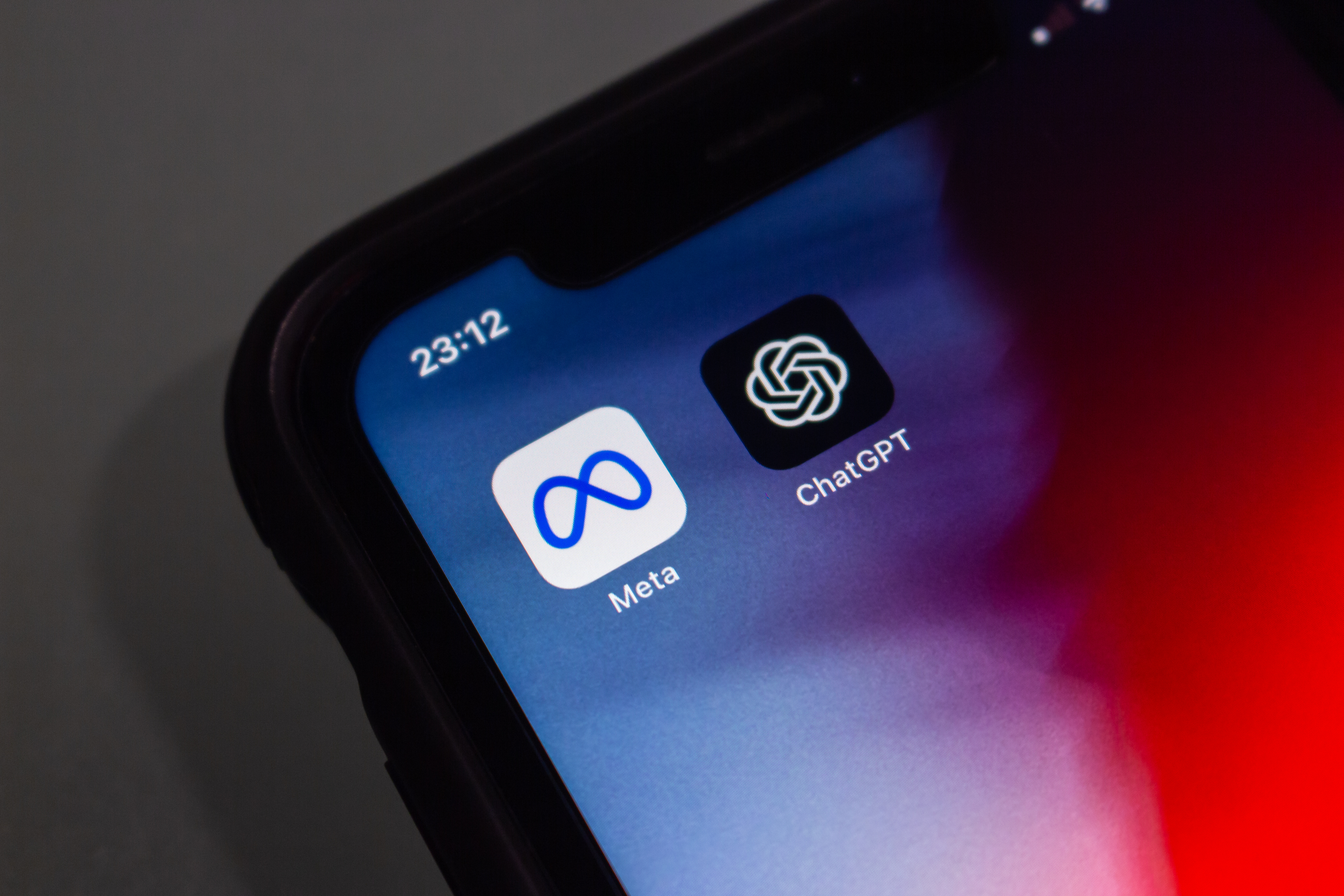
AI Imagery Reshapes Workflows
Text-driven image generation is compressing design timelines and changing how organizations plan, test and scale visual content output.
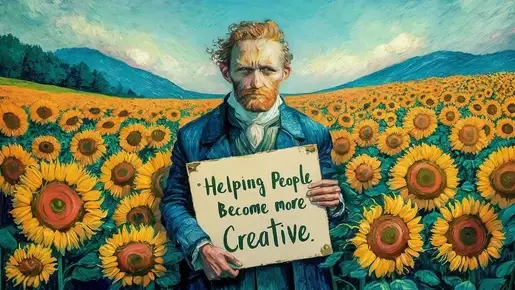
AI Talent Arms Race
Despite the billions being thrown around, it is unclear if Meta’s hiring spree will pay off. The company’s own AI models have lagged behind competitors on key benchmarks, including code-generation tests on the large model (LM) arena. Industry observers worry this hyper-competitive recruitment race could fracture teams or push salaries to unsustainable levels.
Still, Zuckerberg appears undeterred. As he told staff:
“At the heart of this fight is a tiny circle of AI experts. Everyone wants them — Google, Microsoft, Anthropic, Meta, OpenAI. That scarcity has turned AI talent into a commodity worth billions.”
With Meta forming new labs, scooping up high-profile founders, and dangling record-breaking bonuses, the battle lines for AI supremacy have never been clearer. Billions are at stake. The future of generative and superintelligent AI could depend on who wins this war for talent. Yet this is only the beginning of the AI wars!




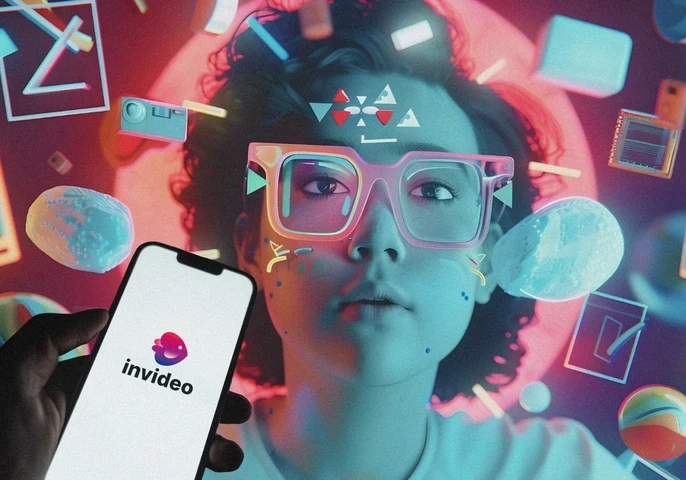
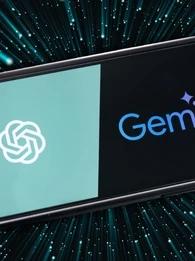

Comments ( 0 )